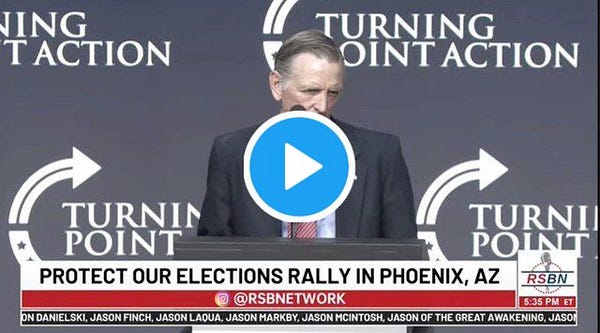Both Democratic Senator Mark Warner of Virginia and Republican Senator Rob Portman of Ohio told television hosts today that they expect an infrastructure deal on the $579 billion bill this week. Senate Majority Leader Chuck Schumer (D-NY) has said that he will delay the Senate’s upcoming recess until this bipartisan bill and another, larger bill that focuses on human infrastructure are passed. House Speaker Nancy Pelosi (D-CA) says she will not hold a vote on the smaller infrastructure bill until the larger bill, which is a priority for Democrats, passes the Senate.
There are a lot of moving pieces in this infrastructure bill that have more to do with politics than with infrastructure.
First, what is holding up the bill in the Senate is a disagreement about the proper ratio of funding for roads and public transportation. When Congress passed the Federal-Aid Highway Act in 1956, starting the creation of 41,000 miles of interstate highways, lawmakers thought that gasoline taxes would pay for the construction and upkeep of the highways. Congress raised the gas tax four times, in 1959, 1983, 1990, and 1993. But, beginning in 2008, as fuel efficiency went up, the gas tax no longer covered expenses. Congress made up shortfalls with money from general funds.
In 1983, in order to gain support for an increase of $.05 in the gas tax from lawmakers from the Northeast who wanted money for mass transit, Congress agreed to establish a separate fund for public transportation that would get one out of every five cents collected from the gas tax. This 80% to 20% ratio has lasted ever since.
Now, Republican negotiators are demanding less money for public transportation and more for roads, sparking outrage from Democrats who note that a bipartisan agreement has stood for almost 40 years and that changing the ratio between public transportation and roads will move us backward. According to the Environmental Protection Agency, in 2019, fossil fuels used in transportation produced 29% of U.S. greenhouse gases.
Portman, the lead Republican negotiator, says that Republicans have made a “generous offer” and that it will provide a “significant increase” in transit money. "Democrats, frankly, are not being reasonable in their requests right now,” he said.
Republicans want to deliver money to rural areas where people depend on driving, even though there are far more people who live in areas that benefit from public transportation. Rural areas, of course, are far more likely than urban areas to be full of Republican voters.
Democrats in the House are eager to address climate change. On July 21, Chair of the House Committee on Transportation and Infrastructure Peter DeFazio (D-OR) and 30 Democratic members of the committee wrote to Pelosi and Schumer to urge them to include instead the terms of the INVEST in America Act the House passed on a bipartisan basis earlier this month. That bill offered a forward-looking transportation package that expanded public transportation even as it called for road and bridge repair. “We can’t afford to lock in failed highway-centric policies for another five years,” they wrote.
But there is a larger story behind this transportation bill than the attempt of Republicans to change a longstanding formula to keep themselves in power. Republicans who are not openly tying themselves to the former president want to pass this measure because they know it is popular and they do not want Democrats to pass another popular law alone, as they did with the American Rescue Plan when Republicans refused to participate.
Democratic leadership wants to work with those Republicans to pass a bipartisan bill because it will help to drive a wedge though the Republican Party, offering an exit ramp for those who would like to leave behind the increasing extremism of the Trump Republicans.
Trump Republicans are, indeed, becoming more extreme as the House’s select committee on January 6 takes shape. After the Senate rejected a bipartisan commission to investigate the insurrection, House Speaker Pelosi and the House voted to establish a select committee. Its structure was based on one of the many committees established by the Republican-controlled House to investigate the attack on U.S. government facilities in Benghazi, Libya, in 2012. It permitted the minority to name 5 members, to be approved by the Speaker.
Minority Leader Kevin McCarthy (R-CA) tried to undercut the committee by appointing three members who had challenged the counting of the certified votes on January 6, including Jim Jordan (R-OH), who was at a December meeting with Trump and other lawmakers when they discussed protesting the vote count on January 6, and Jim Banks (R-IN), who attacked the committee, saying: “Make no mistake, Nancy Pelosi created this committee solely to malign conservatives and to justify the Left’s authoritarian agenda.” When Pelosi rejected Jordan and Banks, McCarthy pulled all five of his appointees.
But Pelosi had already established the committee’s bipartisanship when she appointed Representative Liz Cheney (R-WY), a staunch Republican who voted with Trump more than 90% of the time but who openly blamed him for the January 6 insurrection. Today, Pelosi added Adam Kinzinger (R-IL) to the committee as well.
Kinzinger is an Iraq War veteran who was one of the 10 House Republicans who voted to impeach Trump in January. "Let me be clear, I'm a Republican dedicated to conservative values, but I swore an oath to uphold and defend the Constitution—and while this is not the position I expected to be in or sought out, when duty calls, I will always answer," Kinzinger said in a statement.
McCarthy promptly tweeted that the committee had no credibility because Pelosi had “structured the select committee to satisfy her political objectives.”
McCarthy is scrambling, not least because he will almost certainly become a witness for the committee.
But there is more. With Trump out of office, pressure is ramping up on those who advanced his agenda. News broke on Thursday that the FBI had received more than 4500 tips about Brett Kavanaugh during his nomination proceeding for confirmation to the Supreme Court, and had forwarded the most “relevant” of those to the White House lawyers, who buried them, enabling the extremist Kavanaugh to squeak into a lifetime appointment to the court.
In Georgia, law enforcement officers indicted 87 people in what they are calling the largest gang bust ever in the state. Seventy-seven are part of the “Ghostface Gangsters” gang of white supremacists whose network stretched from Georgia to South Carolina to Tennessee. “The gang’s culture, structure, leadership, chain of command, and all involved in the furtherance of this ongoing criminal enterprise have been charged,” law enforcement officers said.
Meanwhile, vaccinated Americans are becoming increasingly angry at the unvaccinated Trump supporters who are keeping the nation from achieving herd immunity from the coronavirus. Some Republicans are starting to call for their supporters to get vaccinated.
As pressure mounts, McCarthy is not the only one who has signed onto the post–January 6 Trump party who is ramping up his rhetoric. This weekend, when presented with a gun, Trump’s disgraced former National Security Adviser Michael Flynn told the crowd, “Maybe I’ll find somebody in Washington, D.C.”
Representative Paul Gosar (R-AZ), who has been linked to the planning for the January 6 insurrection, suggested at an Arizona rally for the former president last night that the rioters were peaceful and that the real criminals were “insiders from the FBI and DOJ.” It seems likely he is hoping to discredit those organizations before more information comes out.
At the same rally, the former president spoke for almost two hours, reiterating his lie that he won the 2020 election and suggesting he would be reinstated into the White House before the next election. (He was weirdly fixated on routers.) He blamed Arizona Governor Doug Ducey, Senate Minority Leader Mitch McConnell, former Vice President Mike Pence, and Kavanaugh for his loss of the White House, and praised his former lawyer Rudy Giuliani.
“The radical left Democrat communist party rigged and stole the election,” he said.
A final note tonight: We lost a great American, Bob Moses, today. I don’t want to tack him on to tonight’s letter; he deserves his own. So hold this space. Until then, Rest in Power, Dr. Moses.
—-
Notes:
https://fas.org/sgp/crs/misc/R45350.pdf
https://www.epa.gov/ghgemissions/sources-greenhouse-gas-emissions
https://www.npr.org/2021/07/25/1020464213/nancy-pelosi-adam-kinzinger-january-6-committee


https://www.washingtonpost.com/nation/2021/01/13/ali-alexander-capitol-biggs-gosar/


https://www.nytimes.com/2021/07/22/us/politics/kavanaugh-fbi-investigation.html
https://www.wrdw.com/2021/07/22/georgia-gov-kemp-will-visit-augusta-discuss-large-scale-gang-bust/
https://www.politico.com/news/2021/07/24/trump-election-claims-rally-500719
https://www.wrdw.com/2021/07/23/87-locals-charged-biggest-gang-bust-state-history/



Learning. Second only to love, has to be the most important thing to making the most of life. Thank you Dr. Richardson for this opportunity to keep on learning.
The White House was actively curtailing and straitjacketing the investigation and tips on Kavanaugh during his conformation hearing. It still makes me angry he could blubber so emotionally and still get confirmed. If it had been a woman her nomination would have been withdrawn instantly as unable to handle the job. Maybe we should all demand that "Justices" Kavanaugh and Thomas recuse themselves on anything to do with women's rights. That would make the court 4 to 3 with the liberal side of the court in the majority so Roe vs. Wade is not overturned. It is hard to listen to the anti-vaxxers crying "My body, my choice" and know they don't see the irony that they are also saying they support a women's right to choose.